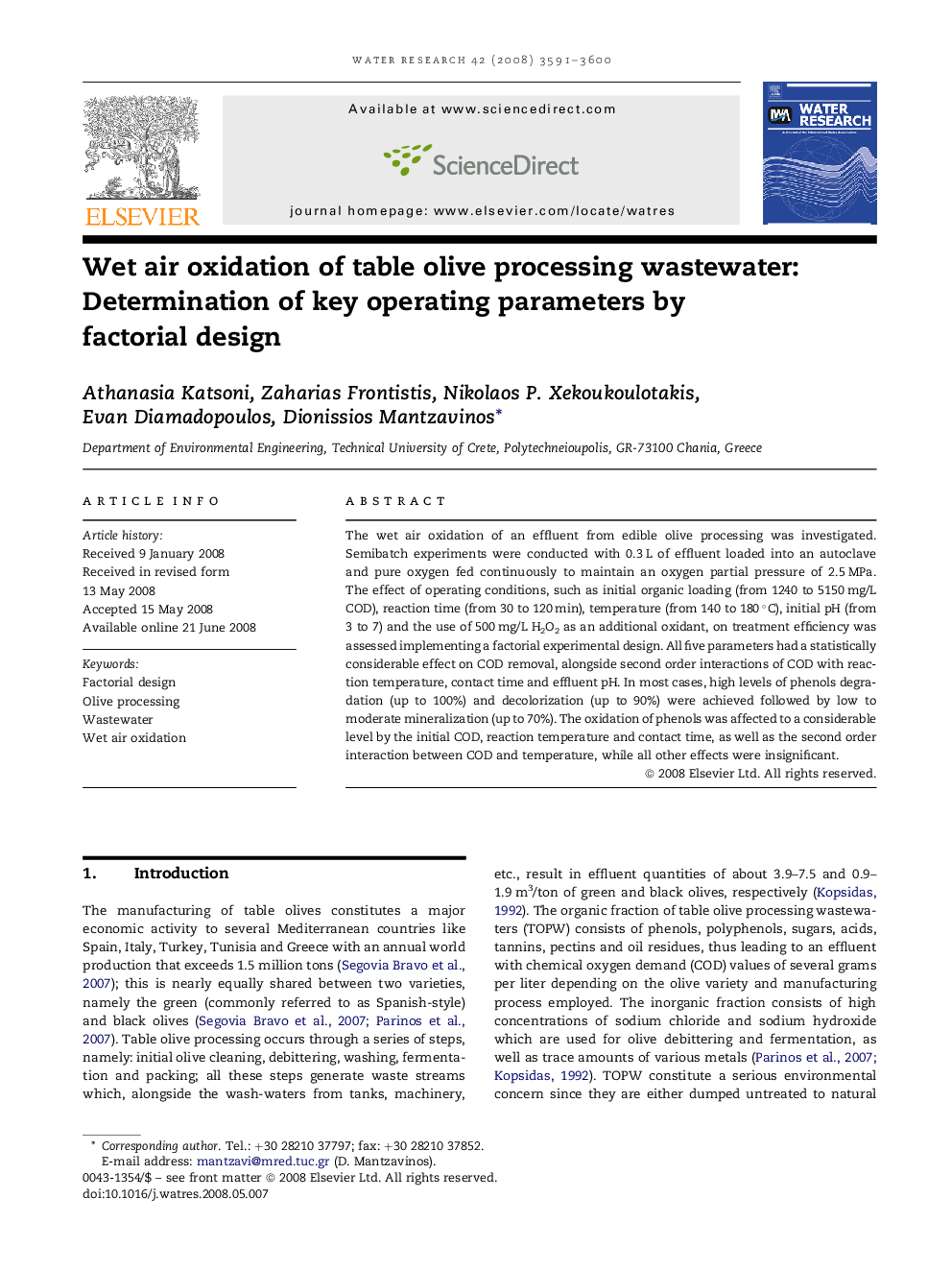| Article ID | Journal | Published Year | Pages | File Type |
|---|---|---|---|---|
| 4485950 | Water Research | 2008 | 10 Pages |
The wet air oxidation of an effluent from edible olive processing was investigated. Semibatch experiments were conducted with 0.3 L of effluent loaded into an autoclave and pure oxygen fed continuously to maintain an oxygen partial pressure of 2.5 MPa. The effect of operating conditions, such as initial organic loading (from 1240 to 5150 mg/L COD), reaction time (from 30 to 120 min), temperature (from 140 to 180 °C), initial pH (from 3 to 7) and the use of 500 mg/L H2O2 as an additional oxidant, on treatment efficiency was assessed implementing a factorial experimental design. All five parameters had a statistically considerable effect on COD removal, alongside second order interactions of COD with reaction temperature, contact time and effluent pH. In most cases, high levels of phenols degradation (up to 100%) and decolorization (up to 90%) were achieved followed by low to moderate mineralization (up to 70%). The oxidation of phenols was affected to a considerable level by the initial COD, reaction temperature and contact time, as well as the second order interaction between COD and temperature, while all other effects were insignificant.
